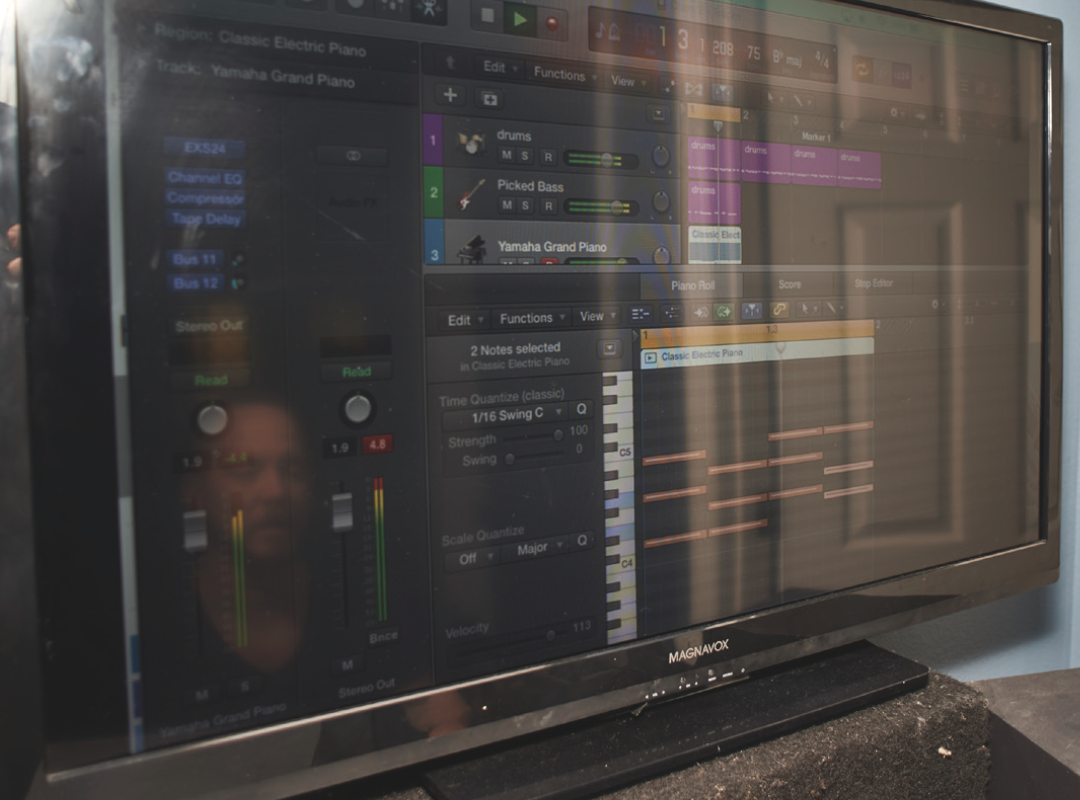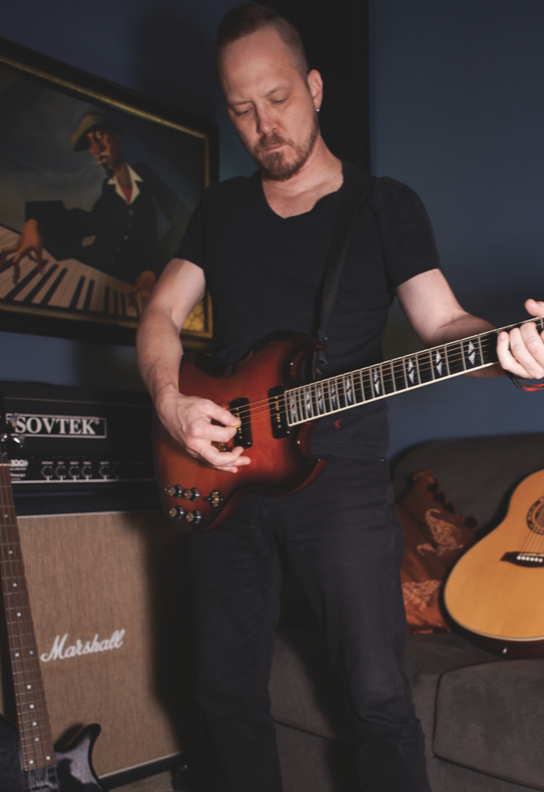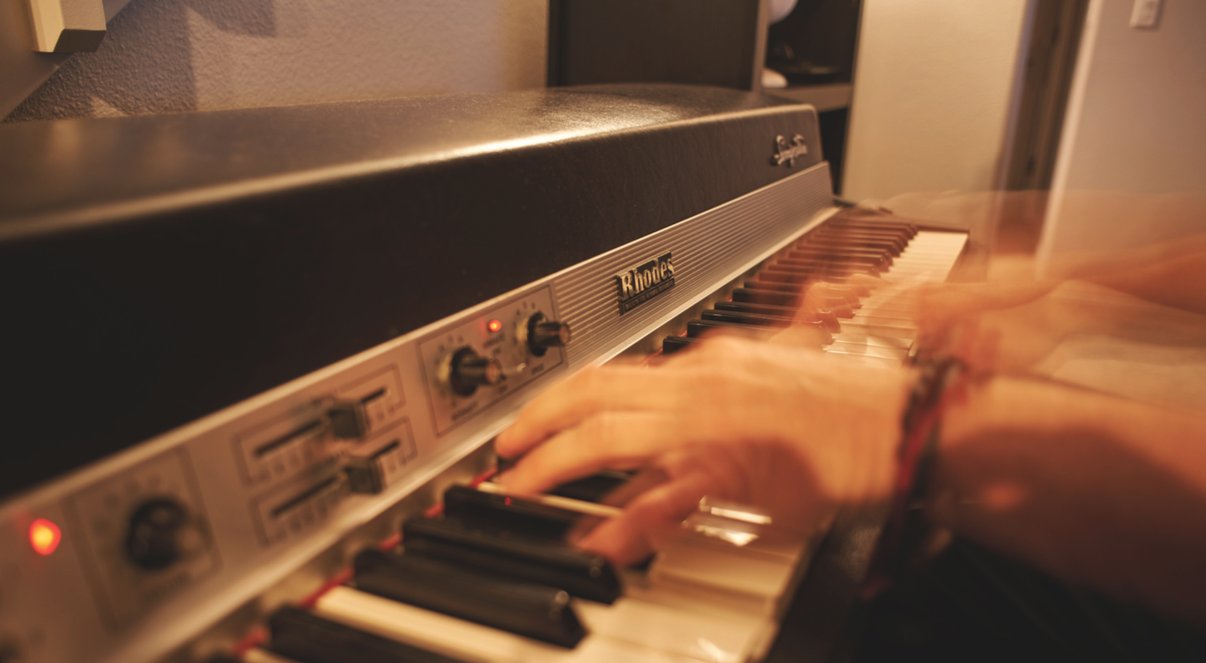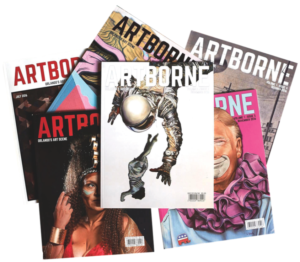Improv comedy is alive and well in Orlando, and it’s as fascinating a world on the inside as it might seem from the outside. I caught the improv bug about two years ago, following a whim instigated by a coworker who was going to try one of Sak Comedy Lab’s free trial improv classes in downtown Orlando. Back in New York, more than a decade ago, I’d been on a couple of dates with a woman who animatedly swore by the power of improv. Although I can’t remember her name, her love of improv somehow was registered permanently within me as something worth trying.

Amy Poehler told Charlie Rose that, “Improv turns me on, because it’s truly dangerous. It’s an alchemy. It’s dependent on the other, on listening actively and taking risks and chances.” It’s also a tool for unfiltered self-expression—for being accepting, present, and spontaneous—and for mental flexibility. It’s not for everyone. It can be a helluva lot of fun. And it can be rough. To clarify the distinction between improv comedy and standup comedy: improv is a form of theater where most or all of what happens on stage unfolds collaboratively in real time between the scene partners, without a script or prepared dialogue. Short-form improv usually overlays a game of sorts over the improvisation, while long-form improv usually creates strings of short scenes that are somehow linked by interrelated themes, characters, or stories. Most improv scenes take a suggestion from the audience to inspire the start of it.
Sak Comedy Lab has become a powerful regional force for quality improv comedy. They offer six levels of classes that fill regularly. There are two levels of advanced, non-professional performing ensembles. They additionally offer workshops and public performance opportunities for aspiring improvisers such as the Rookie Rumble series and The Brawl for All. Many smaller improv teams have formed in recent years after going through Sak’s classes, and are successfully performing at improv festivals throughout the Southeast. The pro ensemble also does special corporate performances.
Improv workshops and seminars have become a frequent feature in corporate training and development since the 1990s. Corporations often want their employees to embrace at least one of improv’s time-honored principles, namely the concept of “yes, and.” “Yes, and” demands that an improviser treats whatever their scene partner does or says as an offering that must be accepted as part of the reality of the scene. The improviser then builds upon the offer with their own contribution, and so on. As Forbes magazine puts it, “These skills turn out to be particularly useful in workplaces that rely on adaptability.”
A wonderful feature of the pro-ensemble performances at Sak shows and on many of their corporate run-outs is that there is almost always another performer off-stage, unseen but definitely heard. Sak utilizes a bevy of improvising pianists: Kristin Eley, Dave Gibbs, Chris Leavy, Steve Merritt, Anthony Riley, and Tim Turner.

I spoke with Dave Gibbs, who has been playing piano with Sak for almost 15 years. He began formal piano training at age six, and was classically trained for 11 years. He almost finished college with studies in chemistry and microbiology, working towards a pre-med degree, but music kept luring him back to its path. Not only a pianist, Gibbs is also a talented vocalist, guitarist, and songwriter. Just like improv, music careers are often built on “yes, and.” We say yes to everything. Sometimes too many things. Gibbs joined or fronted bands that sometimes got close to that elusive combination of synergy and timing that allows for an emergence onto a broader-than-local stage. One band, Alter Ego, had some regional play. Another, Canvas, almost got signed. Gibbs also worked at Sam Ash and Mars, demonstrating and selling keyboards and related technology. He started a career teaching music theory, songwriting, and project development at Full Sail University, where he still is teaching today. At some point in there, Gibbs said “yes, and” to Sak and added that to the mix, too.
A work-mate from Mars Music, John Wagner, who was playing piano for Sak at the time, invited Gibbs to a performance. Gibbs thought, “It looked like fun. I watched a few shows and I just started doing it, working in the Lab. I did that for a few years pretty regularly, on the weekends. It was a steady income.”
What drew him to it was the sense of fun, but he also discovered aspects of his musical self in the process. “Because of my range and classical training, I discovered I could apply a film score to something instantaneously. I always felt that whenever I watched anything or composed anything, I could move emotion around musically, almost instantly, innately. Some musicians really like to know in advance what they’re going to be playing, but I really like playing off the cuff. I really like improvising.”
Even though it’s happening nearly instantaneously, there’s still a process underneath. “You have a filing cabinet, a bag of tricks that you’re used to. I know how to make something sound like depression, or joy, or French, or this or that. I’ve got all these little tricks. I’ve gathered them over the years, and if you know music theory, you can remember it, because you understand what makes up the [intended] musical language.”
One of the things that sets Sak apart from many other improv troupes is just how often on-the-spot songs are improvised by the actors. “With songwriting, you learn how to guide them through the songs that they make up. You know what a chorus is. You know what kind of chords to use. You know the places in the scale you want be. And how to raise the tension and release it, because that’s all it really is in the end: tension and resolution.”
Gibbs loves the behind-the-scenes aspect of performing with the actors. “One of the most beautiful things about it is you’re not the center of attention. I get to be something else. It’s not me on stage playing for a crowd.” Since he has been doing this for so long and has become so familiar with the language of improv, Gibbs gets to be another actor. Which means that he gets to make offers to the actors. “I really try to support them. To make the jokes that much better. I play like an actor. When they’re doing a Forward-Reverse scene, I’ll play what I just played backwards whenever they need to go backwards. If they slow down, I’ll move down in register. I remember because they have to remember, too. They taught me so much about music, about not overdoing it. To create space. To get to the heart of it.”

What Gibbs has gotten from playing improv sounds a lot like what my date in New York got from it, and what I myself have gotten from it: “It not only changed my sense of humor, but it’s elevated my conversational skills. And my teaching! I listen. I’m more accepting. Being silly and free is really cleansing. To let go and have that trust, and to find laughter in it is really illuminating. Every musician should experience a role like this. There is no sheet music. You’re not the center of attention. You’re improvising, but not soloing. It’s a musical place that every musician should get to try.”
Gibb’s most recent original music project was the band The Deep Field Now, a creative future-rock sound collaboration. More currently, he is concentrating on writing solo singer-songwriting music for guitar and piano, and writing music for a new project called The Peace Lounge. A new rock band is also in development. You can hear some of his work with The Deep Field Now at thedeepfieldnow.bandcamp.com.
Photos by Jason Fronczek
You can see more at: SAKComedyLab.com
